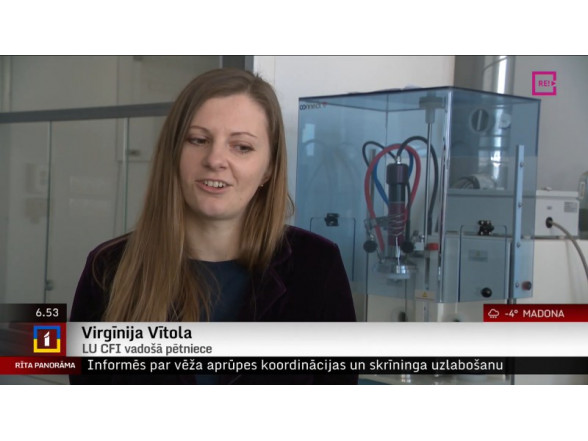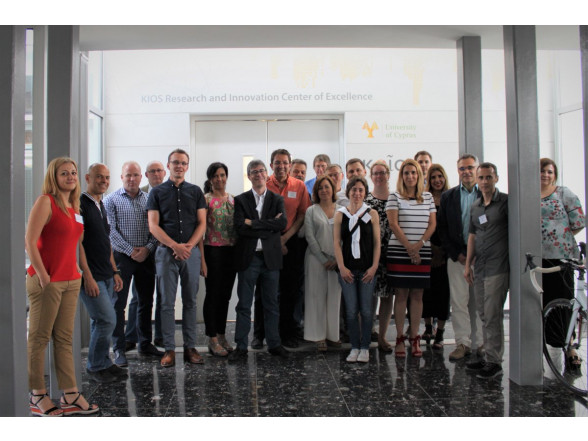On March 9, the national television (LTV1), in its morning program “Rīta Panorāma” (“Morning Panorama”), showed a story about ISSP UL leading researcher from the Laboratory of Optical Materials, Dr.phys. Virgīnija Vītola. She is one of the ISSP UL scientists who received the Latvian Academy of Sciences name awards in January 2023. Her work with youth and the popularization of science among the young generation of Latvia won her Arturs Balklavs Prize for Promoting Science.
In the story, Virgīnija says that she first came to the ISSP UL when she was still in her final school year. She thanks her physics teacher at school for instilling such an interest in physics that Virgīnija decided to devote her life to this field of science. Now young researcher studies glass surfaces and luminescent materials and is working on developing foldable screens. Her research interests include electroluminescence, various coatings, and optical memory materials.
The glowing materials could be helpful in the future, for example, in road signs that will not need to be supplied with electricity. During the dark time of the day, such road signs will allow drivers to spot them earlier.
Her desire to always learn something new and her inexhaustible energy is what her colleagues appreciate the most. Colleagues describe her as active, always inspiring and motivating. With her work, Virgīnija breaks the stereotype of scientists as boring and withdrawn people who spend all their time in laboratories.
Virgīnija has led the Young Physicists School of Latvia for several years, attracting youth and students to science. She also organizes various camps for school students and participates in different cities’ festivities, telling people about physics and showing experiments.
"I like that the work in science is not uniform because I constantly have to look for new directions, follow what is happening in the world, what other scientists are studying, and all this takes place in a large network of cooperation with researchers from other countries,” Virgīnija explains.
Now, the young scientist and her colleagues have begun to study materials that start to glow when they are subjected to some mechanical impact. In the future, this could help to create sensors that, without drilling or destructively interfering, will show the formation of cracks inside various objects.



